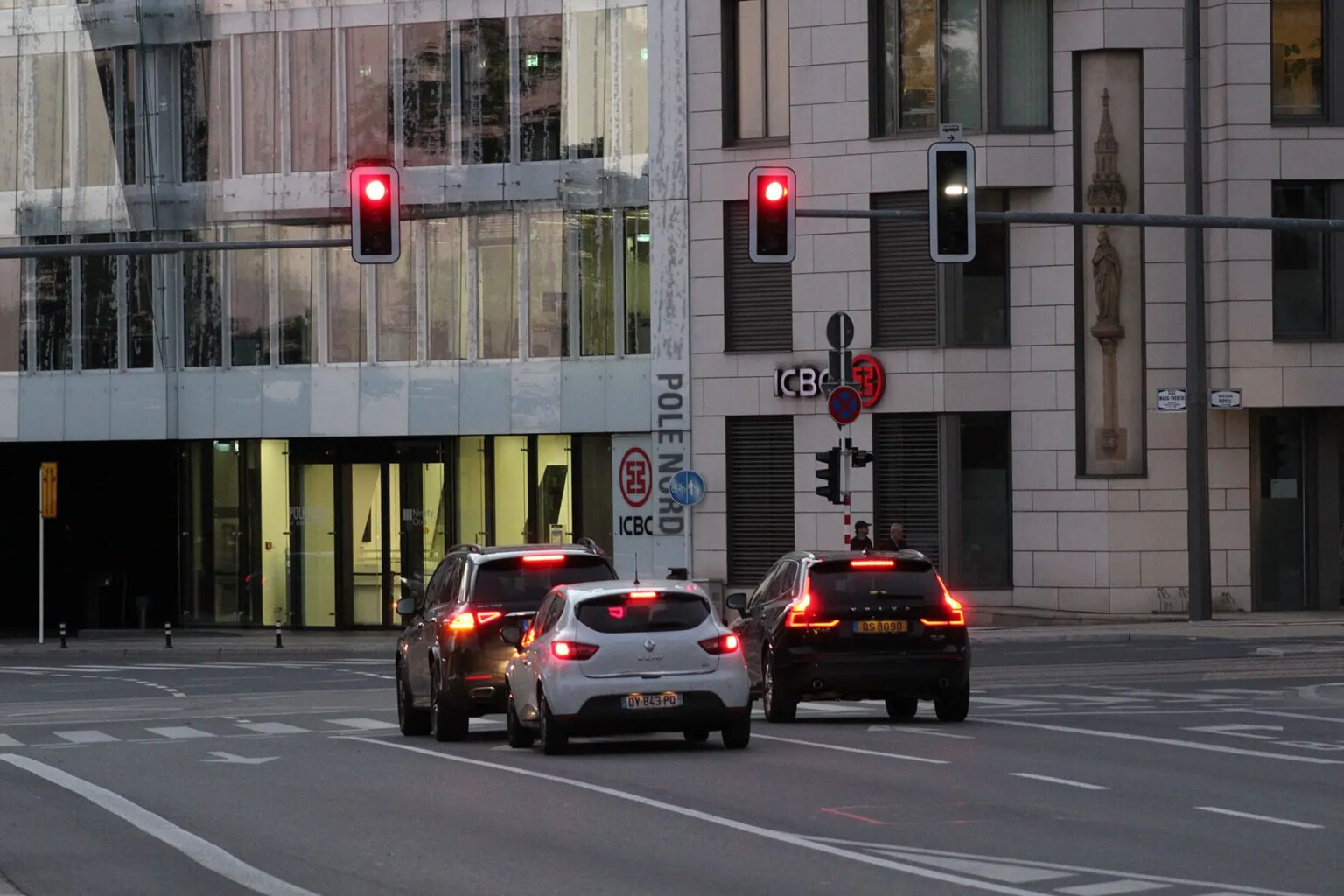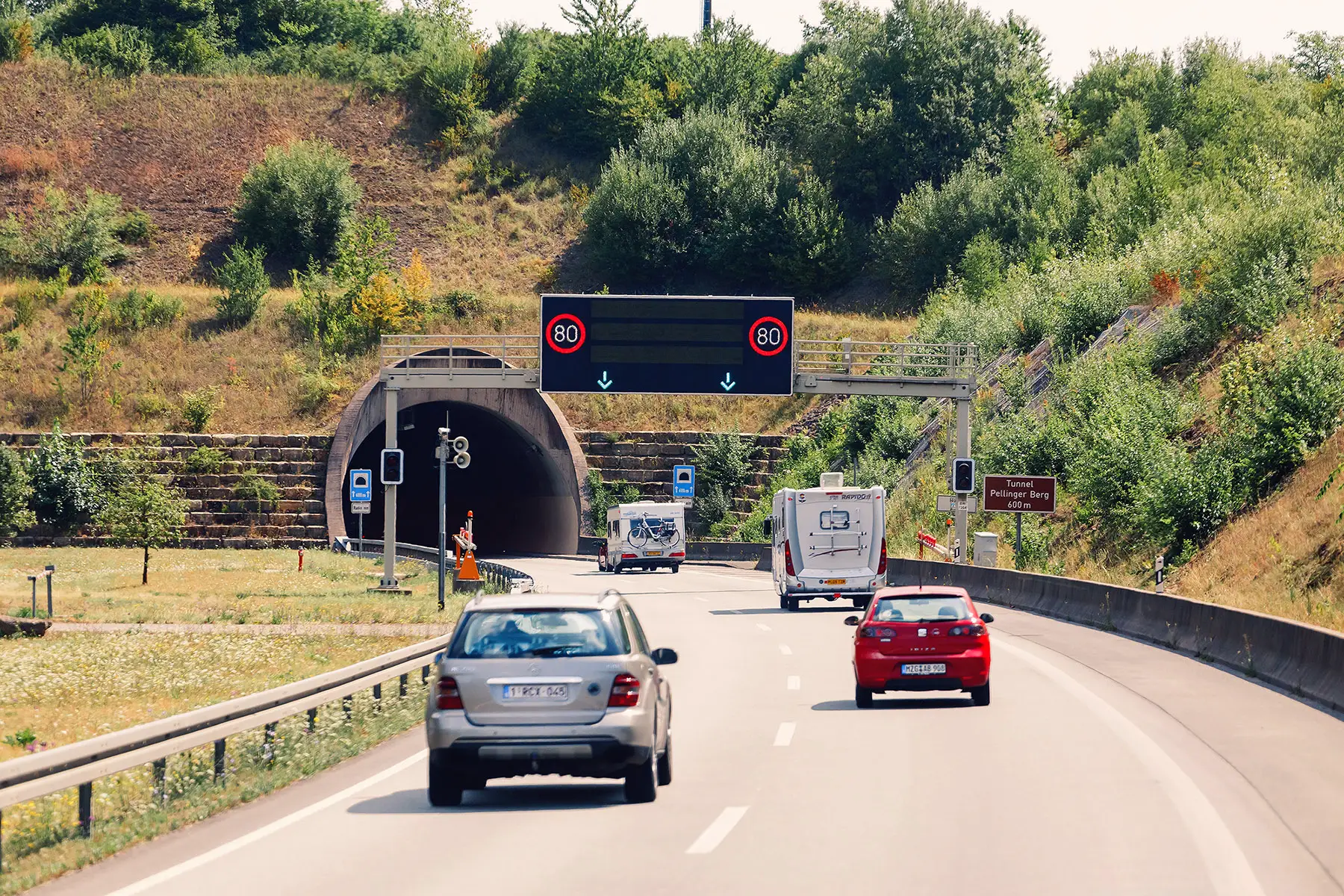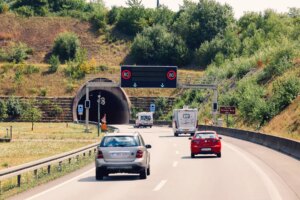Learning how to drive can be difficult. But once you’ve got the hang of it, getting your driver’s license is easy as going from A to B.
Here’s what you need to know:
- Driving licenses in Luxembourg
- Getting a driving license in Luxembourg
- Driving lessons in Luxembourg
- Driving tests in Luxembourg
- Before getting on the road
- Driving with a foreign driver’s license
- Exchanging a foreign driver’s permit
- Renewing a driving license in Luxembourg
- Lost, damaged, or stolen driver’s licenses
- Driver’s licenses for other vehicles
- Useful resources
Driving licenses in Luxembourg
A driver’s license (Luxemburgish: Fürerschäin, French: permis de conduire, German: Führerschein) is an official document that allows you to drive in Luxembourg and all member states of the European Union (EU) and European Economic Area (EEA – Iceland, Liechtenstein, and Norway). Unlike in other EU countries, driving permits are not a valid form of ID.
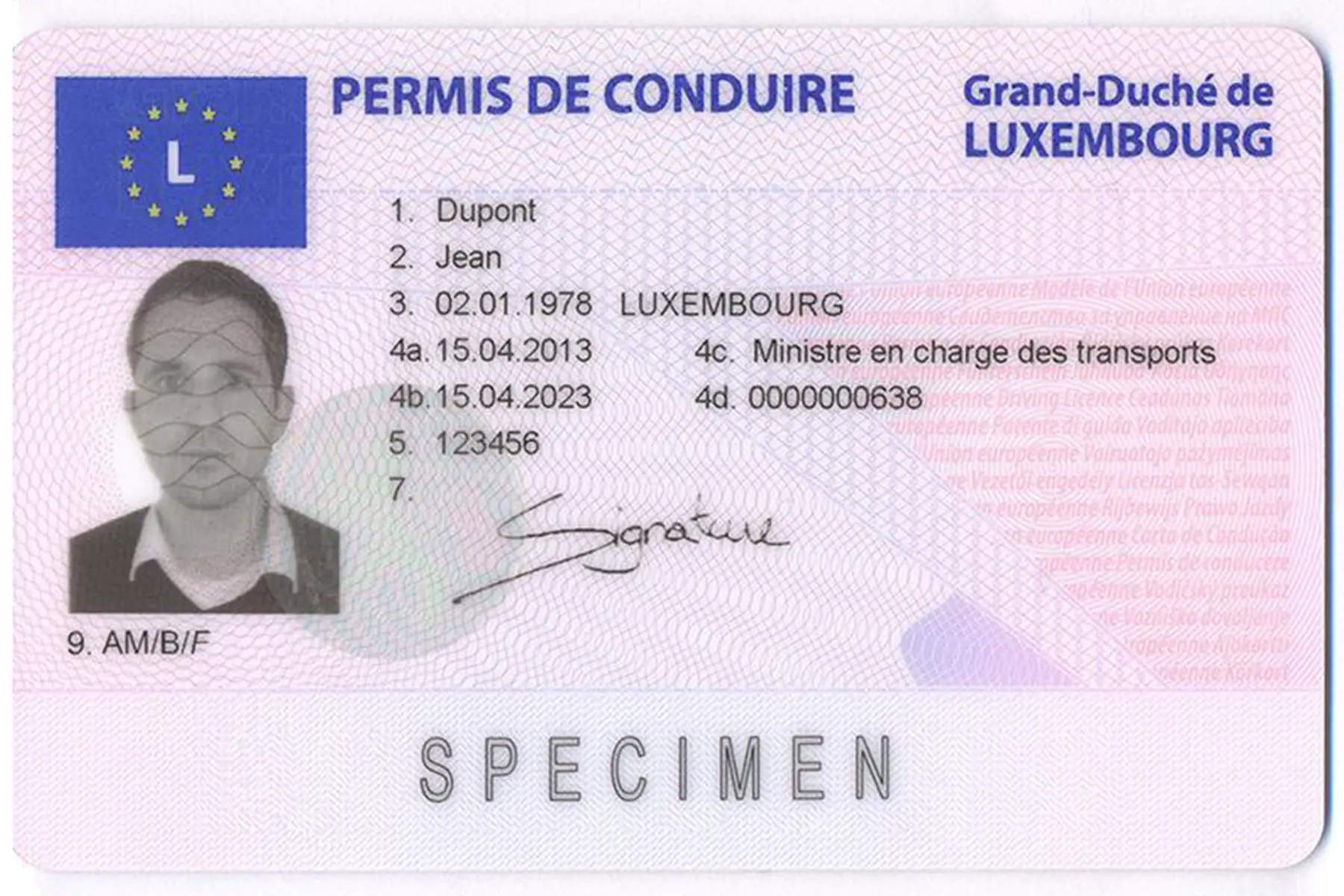
The permit is a pink plastic card, the size of a regular bank card. It lists your personal details, the type of vehicle you’re allowed to drive, and the license issue and expiry date. They are valid for up to 10 years, depending on your age and license category.
The front of the card features the following:
| Number on the license | Information it contains |
| 1 and 2 | Your full name |
| 3 | Your date of birth and place of birth |
| 4a and 4b | The start and expiry date of the license |
| 4c | The licensing authority |
| 5 | Your license number |
| 7 | Your signature |
| 9 | Your license category (e.g., B for cars) |
On the back of the license, you’ll find a table with information on the different driving categories. Luxembourg has five categories, including:
- A – mopeds and motorcycles
- B – personal cars
- C – small trucks
- D – motor vehicles that can transport up to 8 people (i.e., a bus)
- F – tractors
Driving permits fall under the responsibility of the Ministry of Mobility and Public Works (Luxemburgish: Ministère fir Mobiliéit an ëffentlech Aarbechten, French: Ministère de la Mobilité et des Travaux publics, German: Ministerium für Mobilität und öffentliche Arbeiten). The Driving Licence Office (Service des Permis de Conduire) from the National Society of Automotive Traffic (Société Nationale de Circulation Automobile – SNCA) is the issuing body.
Expats with a foreign license are allowed to drive in Luxembourg, depending on their nationality. More on that below.
Point system against reckless driving
Luxembourg uses a demerit point system to combat traffic violations. All drivers have 12 points on their permit. If you commit a traffic offense or cause an accident, you will lose one or more points.
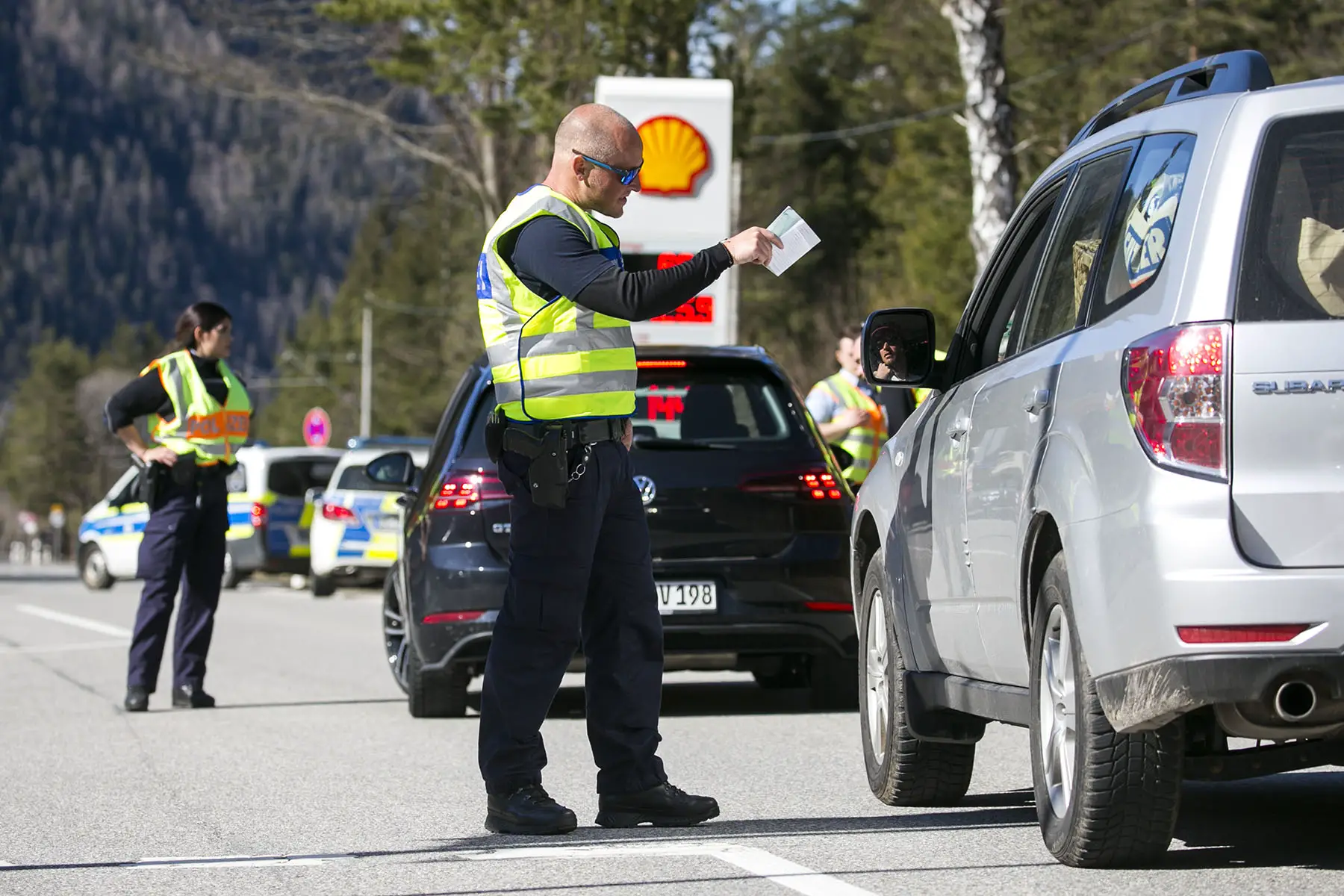
Every three years, you can take a voluntary driver’s training (Luxembourgish: Coursen automobil, French: formations automobilistes, German: Kurse Auto) to recover three points. Alternatively, you can regain your 12 points by behaving responsibly on the road for three years.
After losing all 12 points, your permit will be suspended for 12 months – or 24 months if it is your second suspension. You must then take mandatory driver’s training to get it back.
Getting a driving license in Luxembourg
You must be 18 to get an independent driver’s license in Luxembourg. You’ll also need to get medical clearance from your family doctor and pass a theory and practical test.
Your driving school (Luxembourgish: Fahrschoul, French: auto école, German: Fahrschüle) will submit the application for you. You’ll need to provide a:
- Recent passport photo
- Medical certificate from a doctor in Luxembourg – no more than three months old
- Copy of a valid ID or passport
- Recent extract from your criminal record – if you’ve been in Luxembourg for less than five years, it must be issued by your previous home country
- €30 tax stamp
Processing times can vary, so it’s best to ask your instructor how long you can expect to wait.
Beginner’s driving license
The first two years of having your driver’s permit is called the training period. During this time, you’ll need to:
- Keep your training booklet at you at all times – this is used to record your traffic offenses
- Take a one-day training course at a Driving Safety Center – you can only do so after three months
After the probationary period has passed, you’ll have your independent permit.
Driving lessons in Luxembourg
You can start taking lessons from the age of 17 and a half. By law, you’re required to take a 12-hour course on driving theory. The cost of this course differs per area and can range from €120-180. After that, you’ll receive a learning certificate that you’ll need to bring to your driving theory test.
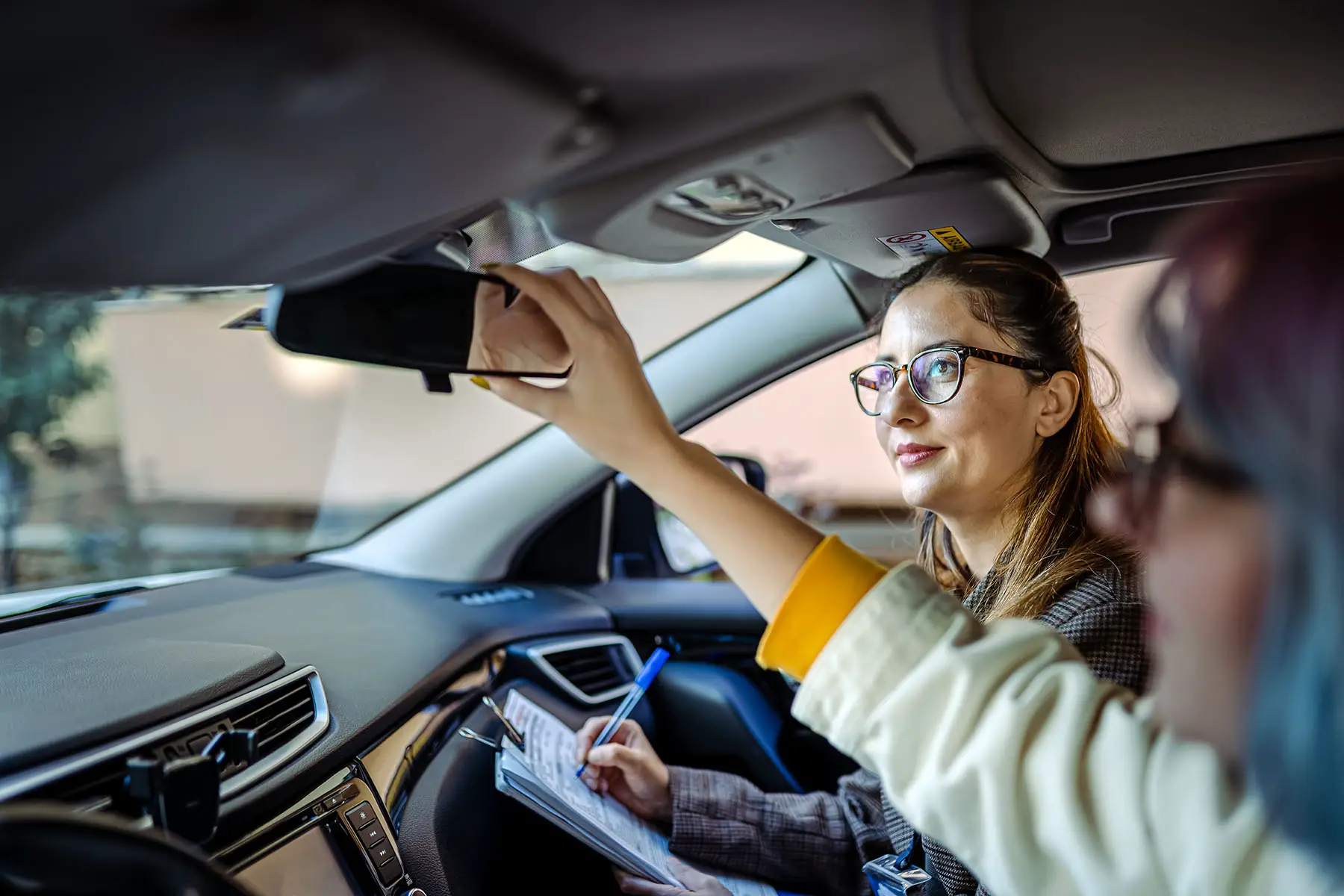
You can then move on to your practical driving lessons. The legal requirement in Luxembourg is:
- At least 16 hours for a regular first-time driver’s license
- Only six hours if you already have a license (e.g., a motorcycle license)
- 12 hours with an accompanying driver for a restricted learner’s permit that is valid for three years
If you fail your practical exam, you’ll need to take an additional eight hours of lessons before you can try again.
Driving lessons are somewhat expensive in Luxembourg. Rates range from €60 to €80 per hour. Some schools also offer fixed-price packages that include a set number of lessons. Others have fast-tracked options that, although more expensive, will get you your permit faster.
In 2023, students paid an average of €1300-1800 for their driving license, if they passed the practical test on their first attempt.
Driving schools
All driving schools in Luxembourg are registered with the SNCA. Most offer lessons in Luxembourgish, French, and German, but some can also teach you in English.
Top driving schools for expats include:
Driving tests in Luxembourg
To get your driving license, you will need to pass a theory and a practical exam. These tests in Luxembourg are relatively difficult. In 2022, only 72.8% passed the theory exam on their first try. The success rate dropped to 57.5% passing their practical test on the first attempt.
Driving theory test
The theory test consists of 50 multiple-choice questions covering the Luxembourg Highway Code, traffic laws, and road safety rules.
As said before, you must first take a 12-hour course on before you can take the theory test. Once you’re ready, you can schedule a date, time, and place for the exam on the government portal Guichet. If necessary, you can request an oral exam or be assisted by a sworn translator.
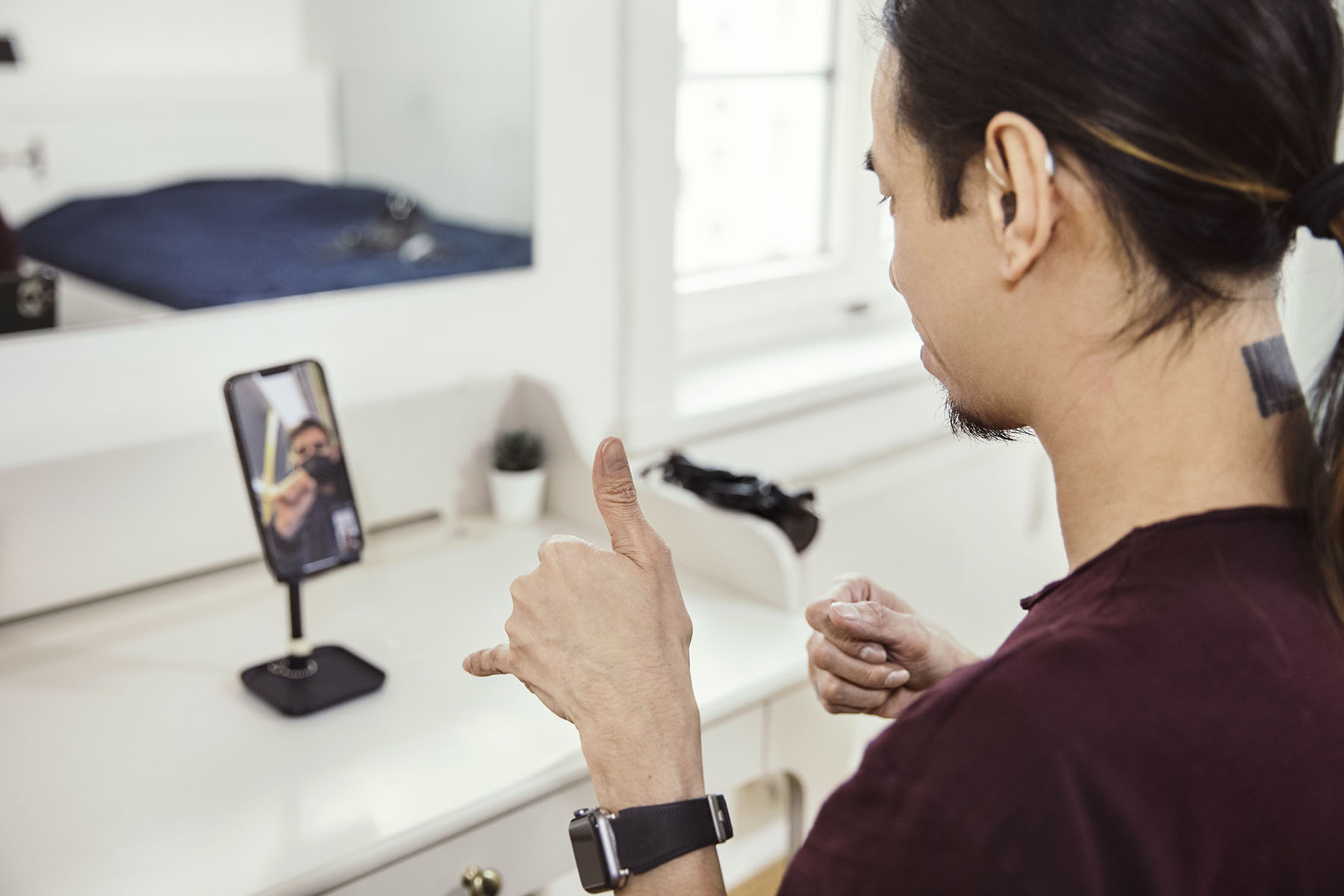
Driving theory exams are conducted digitally at the test center and can be taken in Luxembourgish, French, German, Portuguese, or English. The exam takes approximately an hour and you must correctly answer at least 45 questions to pass.
If you fail the exam, you must repeat six hours of theory classes before you can take the exam again. If you pass the exam, the result is valid for three years.
A regular Luxembourg driving theory test costs €30.
Practical driving tests
You can take the practical test after completing the mandatory hours and passing your theory test. Your school will book the exam for you and pay the fee on your behalf. The costs of this are around €100-110.
The test itself is fairly standard, completed with an instructor in the vehicle with you, checking to make sure that you are meeting all the legal requirements to be a safe driver. If you fail, you can take the test as many times as you want; however, after each failure, you must take (and pay for) at least eight hours of driving lessons.
If you pass, you’ll enter the training period with a beginner’s license.
Before getting on the road
You must take out third-party liability car insurance (Responsabilité Civile – RC) before you can drive in Luxembourg. Additional insurance that covers you for damage, accidents, and theft is optional.
You can find affordable insurance quotes in the Expatica Directory or on a comparison site, such as Switchr or TopAssur. Top insurance companies in Luxembourg that cater to expats include:
Driving with a foreign driver’s license
Tourists and temporary residents are allowed to drive in Luxembourg using their foreign driving license. If you are from outside the EU/EEA region and your driver’s permit is not written in French or German, you must have an official translation or International Drivers Permit accompanying it.

If you move to Luxembourg and have an EU/EEA license, you can use it for as long as it is valid and you’re not committing any traffic violations. You are not required to register your permit; however, it is strongly recommended to do so in case it gets damaged, stolen, or lost.
Those with a driving license from outside the EU/EEA must exchange for a Luxembourg one during their first year of residency. If the one-year mark elapses without you exchanging your permit, you will need to go through the standard process of getting a new driver’s license, including passing a theoretical and a practical test. Moreover, your foreign license will also be no longer recognized.
Exchanging a foreign driver’s permit
Luxembourg has strict rules for exchanging foreign driving licenses:
- Your permit can only be exchanged if you were a citizen, permanent resident, or student (for at least six months) in the issuing country
- Your license must be from a country that has signed the 1949 Geneva Convention on Road Traffic or the 1968 Vienna Convention on Road Traffic
- Licenses can be exchanged, at the earliest, 185 days after moving to the country
If the above applies to your situation, you can exchange your permit by sending a completed form (in French) to the SNCA Driving License Office. You’ll also need to provide a:
- Recent passport photo
- Medical certificate from a doctor in Luxembourg – no more than three months old
- Copy of a valid ID or passport
- Copy of your foreign permit (both sides)
- Extract from your criminal record covering the past five years – no more than three months old
- Bulletin n°4 from the Luxembourg criminal records (no more than three months old)
- €30 tax stamp
- Additional documents if necessary
When you are issued your Luxembourg driving license, you must hand in your foreign permit. It will be sent back to the issuing country.
Renewing a driving license in Luxembourg
Around two months before your permit expires, you will receive a letter from the SNCA inviting you to renew it. You can fill out the attached form (in French) and provide a recent photo. If you are over 60, you must also submit a medical certificate that is less than three months old to prove you’re competent to drive.
For more details about renewing your license and document drop-off locations, visit the government website.
Lost, damaged, or stolen driver’s licenses
If your foreign driving license is lost, damaged, or stolen and it’s not registered in Luxembourg, you’ll first need to contact the authorities in your home country. They will provide you with a certificate of authenticity, which is necessary to replace your old permit.

Next, you can contact the SNCA Licensing Office. You’ll need to provide a:
- Completed form
- Recent passport photo
- €30 tax stamp
- In case your license is damaged, a copy of your old permit (both sides)
You’ll receive your new driving license by post within a few days.
Driver’s licenses for other vehicles
You can get a driving permit for the following vehicle categories:
| License | Vehicle | Requirements |
| AM | Moped and light quadricycle | – Minimum age 16 |
| A1 | Light motorcycle and tricycle with a maximum power of 15 kW | – Minimum age 16 |
| A2 | Motorcycle with a maximum power of 35 kW | – Minimum age 18 |
| A | Motorcycle and tricycle | – Minimum age 20 for a motorcycle – Minimum age 21 for tricycle |
| C | Vehicle that weights over 3.5 tons and carries no more than 9 persons | – Minimum age 21 |
| C1 | Vehicle that weighs between 3.5 and 7.5 tons, carrying no more than 9 persons | – Minimum age 18 |
| D | Vehicle that carries more than 9 persons | – Minimum age 24 |
| D1 | Vehicle that carries no more than 17 persons, with a maximum length of 8 meters | – Minimum age 21 |
| F | Tractors | – Minimum age 16 |
Any category followed by an E means you can drive that vehicle with a trailer that weighs over 750 kg.
